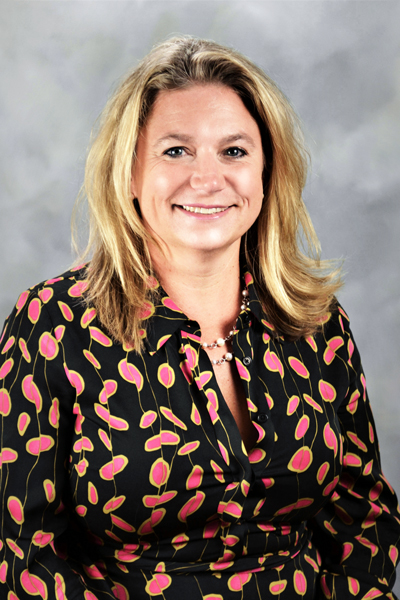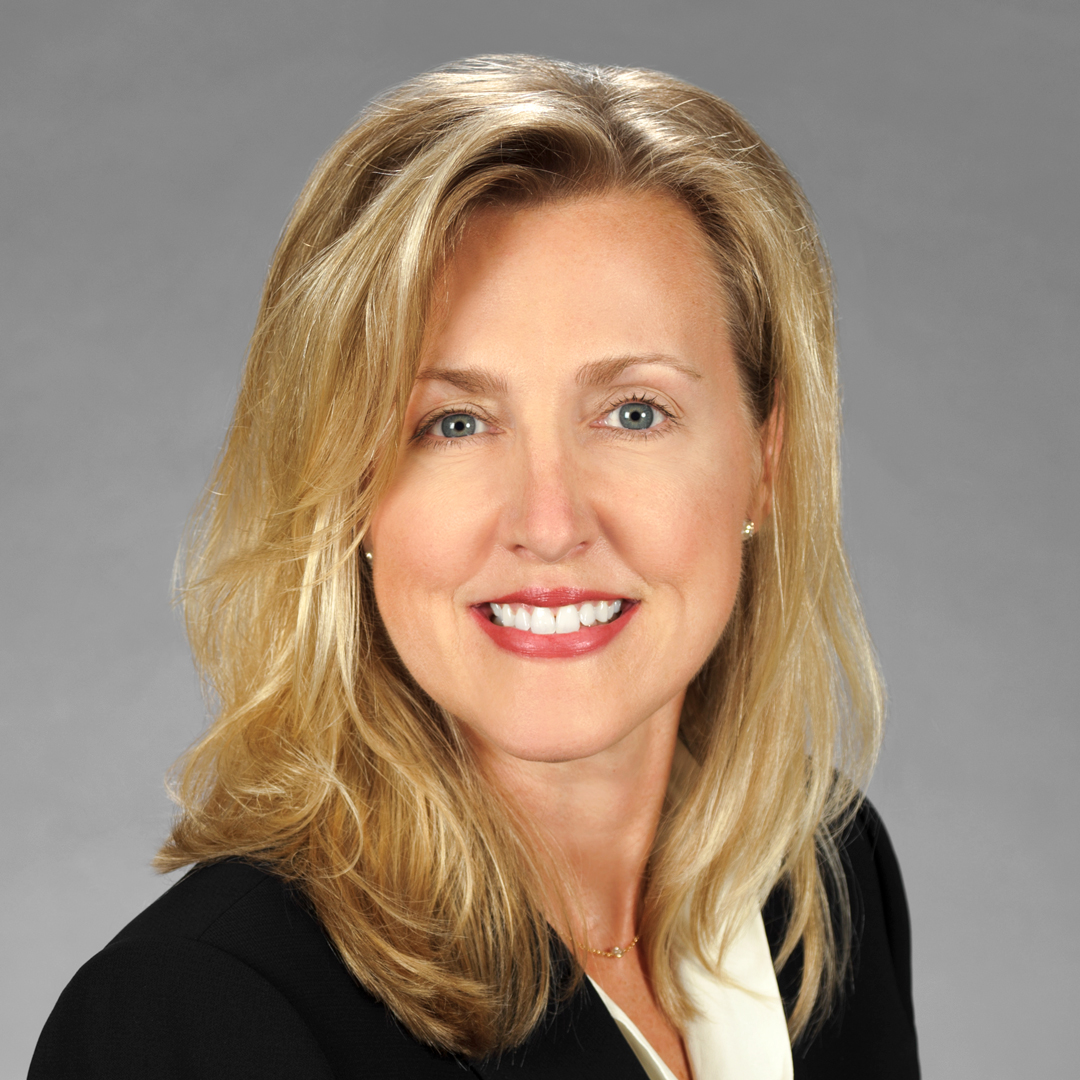When she was just seven or eight years old, Kindra Kirkeby bought a casebook on criminal law at a yard sale, telling her mother “becoming a lawyer is hard work, so I need to start studying now.”
Hard work is something very familiar to Kirkeby, who learned personal discipline, attention to detail, and the ability to quickly spot and correct imperfections as a competitive springboard diver throughout high school and college. These traits make her well-suited for her general counsel role focused on compliance and litigation.
Prior to joining NewMarket Corporation in 2008, Kirkeby spent eight years in ExxonMobil’s law department. With nearly twenty years of legal expertise, Kirkeby spoke with Profile magazine about the five principles she believes are essential to successful in-house lawyering and almost any professional relationship.

1. Wisdom is acquired by experience, not just age.
Joining ExxonMobil directly following graduation from law school meant that I was younger than many of my opposing counsel or in-house counterparts. My first supervisor, Robert Wallis, was pivotal in helping me overcome any fears and self-doubts, empowering me to make decisions and to trust my own judgment.
Supervising several million dollars in outside counsel and consultancy fees while juggling more than one hundred different matters was pretty overwhelming at first, but his support gave me the confidence I needed to think creatively and do my job to the best of my ability.
I learned so much from my first technical counterparts by partnering with and giving them the support and respect they deserved. I gained their trust and respect despite my youth and lack of a science degree. I spent a lot more time listening, learning when and when not to speak up. I wanted to be able to learn and absorb every minute detail and to provide insight, perspective, and solutions.
While building confidence in their own abilities and knowing what’s best for the company, in-house attorneys must be mindful of the ultimate business goals, what is required of their clients, and how their clients envision success. The only way to provide business-practical advice is to know its values and goals. Developing proactive working relationships with internal stakeholders provides depth of experience earlier and provides a platform for being an indispensable team member. Immersed in these priceless experiences, I didn’t realize I was building up a wealth of knowledge that couldn’t have been gained any other way.
2. Know when to be the expert and when to hire the expert.
Starting in the litigation department and working with trial attorneys, I quickly learned how to hire the right lawyer and to know when one lawyer’s strategy may not be compatible with the desired outcome.
When I started at NewMarket, I immediately transitioned from a domestic role to a comprehensive global one. The EU had just started the process of registering chemical substances and components that were manufactured or imported under the EU-REACH (Registration Evaluation, Authorization, and Restriction of Chemicals) regulations. Being thrust into an area that I was highly unfamiliar with, I researched and learned as much as I could. I also needed to know what our business needs and goals were; if I didn’t understand those, an outside counsel’s relevant experience and value would be indistinguishable.
As I went through the process, I realized that none of the firms or lawyers had any particular knowledge base that would be of significance and that our internal team had a better handle on these matters. Throughout the past decade, our internal team has been successful without the added external expenses of outside attorneys. Now that the space has evolved, we know who those emerging attorneys are and who to reach out to should our needs change.
Being able to triage and break down problems makes me an important contributor, enables me to reduce our reliance on outside counsel, and leads to more efficient use of the experts we do engage. By having the right people giving the right type of legal assistance during my first two years at NewMarket, I was able to reduce the outside counsel fees by almost 90 percent. Part of being successful is knowing when to be the expert and when to hire the expert.
“Developing proactive working relationships with internal stakeholders provides depth of experience earlier and provides a platform for being an indispensable team member.”
3. Embrace the necessity to continually learn.
I wanted to imbed myself as a part of the problem-solving team, which meant I had to understand the underlying science and chemistry in addition to our business culture. I never imagined that, as a double major in English and philosophy, I would end up in a STEM-intensive legal job. That makes my job one of continuous learning, which I thrive on. The true value-added lawyering comes from the “how to think” process that begins in law school and evolves throughout your career.
When I was at ExxonMobil, all new general lawyers started in the litigation group. First-hand experience is truly the only way to understand the sobering reality of civil litigation. Realizing that no two cases will ever really have the same facts or same nuisances details the importance of asking more questions, digging deeper, and continually learning about the focus of the matter.
Being a true partner in the business requires much more than knowing the product you defend or the policies. It requires having a seat at the table and the ability to provide the best options for the company—all things new lawyers aren’t necessarily taught in today’s legal education process.
At ExxonMobil, I was one of more than five hundred attorneys and in a subset of about twenty-five environmental-focused attorneys globally. While feeling anonymous at times, I reported to a chief attorney and, during my tenure, I only met or spoke with the general counsel twice. Transitioning to NewMarket, I came in as, and remain, the only attorney advising on environmental, health, and safety issues globally, and I have always reported directly to our general counsel. While no less challenging, I had more visibility and opportunity right off the bat.
4. Building credibility requires investing time in relationships.
At ExxonMobil, I was one of two lead attorneys overseeing the company’s Superfund sites. In typical Superfund matters, any number of property owners, operators, insurers, indemnitees, and/or indemnitors are brought together as joint defendants to determine who, how, and what must be remediated and paid for. You have to collaborate to develop, allocate, and agree on effective and cost-efficient clean-up plans. The ability to partner, negotiate, compromise, and settle, as well as knowing when litigate, is essential for managing a Superfund.
I built alliances with many different types of professionals. By watching other attorneys and technical representatives interact with their peers and colleagues, I was able to experience firsthand what effective lawyering looked like. In fact, a relationship I previously established with my predecessor, when I represented ExxonMobil and she represented NewMarket, was how I learned about her upcoming retirement and the opening that became my current position.
It’s also extremely important to have good relationships with the people inside your company. At NewMarket, I sit on the global environmental health and safety leadership team, which interacts with our global manufacturing team on a biannual basis. Interacting with my clients face to face, and personally understanding the facilities, work, and challenges, helps me provide better guidance to make their jobs easier and more productive and to better manage unforeseen risks.
“Being able to triage and break down problems makes me an important contributor.”
5. Give back by mentoring and teaching the next generation of in-house counsel.
I have been fortunate to have had numerous opportunities to give back. At ExxonMobil, I was a member of the law department’s recruiting committee, which allowed me to interview applicants, speak about their summer programs and open full-time positions, and mentor summer associates and new attorneys.
When I first moved to Richmond, Virginia, I taught a legal research and writing course at William and Mary Law School, my alma mater. Presently, I serve as a supervisor for the in-house clinical placement with the University of Richmond Law School, and I am a cochair of the Corporate Scholars Program with the Association of Corporate Counsel’s National Capital Region chapter.
Through those programs, I have been able to host many “new to in-house” law students since joining NewMarket. In addition to receiving my mentoring, the students are exposed to the type of projects and partnering in-house counsel work requires, and they can network with other professionals and gain priceless practical experiences. I see this training to be of infinite benefit to both the company and the participating students.

